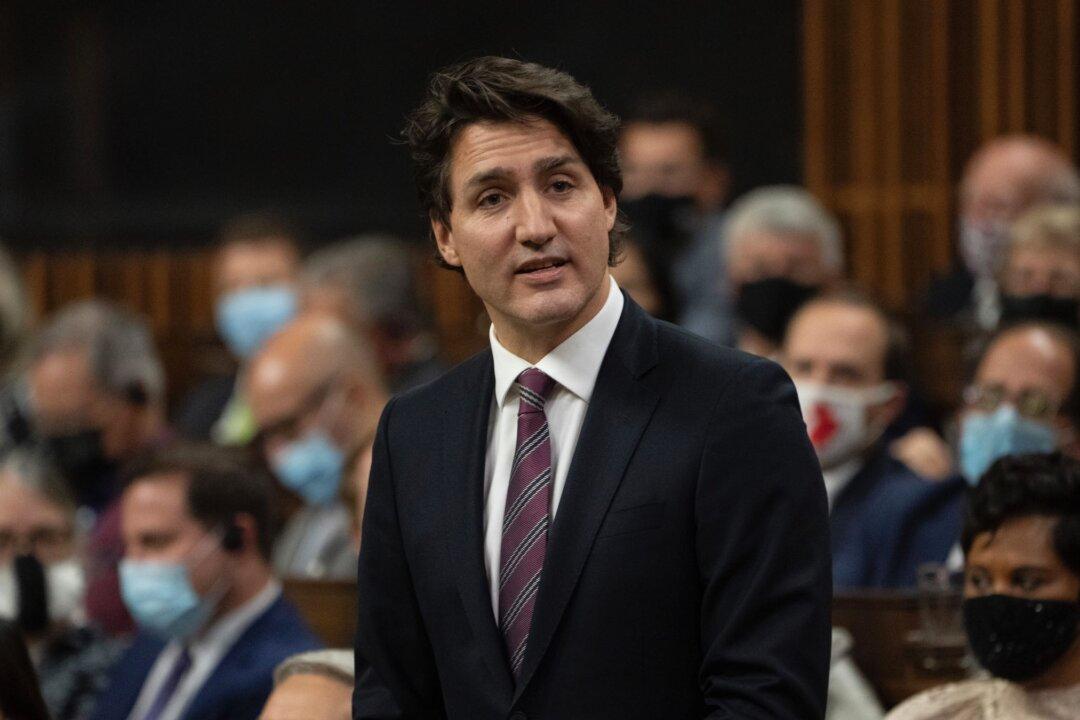Prime Minister Justin Trudeau’s mandate letters to his ministers don’t specify much on China, making it unclear whether the Liberal government has a China policy.
Trudeau asks Joly to develop and launch a “comprehensive Indo-Pacific strategy to deepen diplomatic, economic and defence partnerships and international assistance in the region,” but the fundamental objective is not stated.
A push to “condemn” and “eradicate” arbitrary detentions could apply to any country, but is likely motivated by the case of Michael Spavor and Michael Kovrig who were detained in China for over 1,000 days in apparent retaliation for Canada’s arrest of Huawei CFO Meng Wangzhou at the request of the United States.
Another section of the letter that could be related to China is a directive to work with partners against “economic coercion, cyber threats, foreign interference in democratic processes and egregious violations of human rights.”
‘Many Challenges Out There’
In the interview, Solomon asked Trudeau whether China is the biggest threat to Canada, given recent remarks by the new U.S. Ambassador to Canada David Cohen that China is the biggest threat for his country.Trudeau said that although China is considered a significant challenge, there are other challenges that fall into the same category, including “the rise of authoritarian states.”
“So are cyber attacks, so is Russia in the Ukraine. There are many, many international challenges to democracies like Canada, to our open trading system in the world that is affected by the supply chain challenges. There are many, many challenges out there. China’s certainly one of them,” he said.
Trudeau was also asked if he believes the persecution of Uyghurs in China’s Xinjiang Province constitutes a genocide, as expressed by the United Kingdom, the United States, and the Canadian Parliament. During Parliament’s vote on the issue earlier this year, Trudeau and his cabinet abstained from voting, although other Liberal MPs voted to recognize the persecution as a genocide.
Trudeau said he believes “there needs to be a full investigation into it and I believe there are human rights violations that need to be exposed and accounted for.”
When Solomon remarked China would not allow an investigation, Trudeau said “the word genocide is such a significantly loaded word. We know there needs to be a proper investigation into these allegations of genocide. That’s something that China needs to accept and we’re going to continue to increase pressure on them until they do.”
Mehmet Tohti, executive director of the Uyghur Rights Advocacy Project, criticized Trudeau’s avoidance of acknowledging a genocide, saying his stance “does not hold any water.”
Tohti says there’s already of substantial body of witness accounts, official documents, and expert opinions on the issue.
“Not to call the atrocities committed by the Chinese government as a genocide is another way to skip on their responsibilities, and also it can be interpreted as to disrespect the will of the Canadian Parliament,” Tohti told The Epoch Times.
He adds that China will not let observers and journalists visit the “crime scene.”
Special China Committee
Another China-related issue that disappointed Tohti is the news that the Conservative Party has decided not to launch a bid to revive the House of Commons Special Committee on Canada-China Relations, which dissolved when the election was called.The previous committee, formed two years ago after the Bloc and NDP supported a Conservative motion, gave its members the opportunity to tackle in-depth a range of China-related issues.
Conservative foreign affairs critic Michael Chong told the Globe and Mail on Dec. 20 that the reason is not a change in his party’s stance on China, but rather due to a resources issue in the House of Commons.
Chong said a new science and research committee was created since the election and the Conservatives also want to examine Canada’s withdrawal from Afghanistan through another committee it recently spurred. He also said the China issue would be addressed in the foreign affairs committee.
“It guarantees that we'll see more weaponization of diaspora politics, which effectively mutes, immobilizes MPs.”
“The objective of this false narrative was to incite fear and anger towards the candidate and the Conservative Party in targeted communities. The ultimate impact of these and other influence operations targeting the Conservatives is difficult to measure, though voter influence and conversion remains the likely goal,” the report said.
Tohti says he’s “disturbed” and “disappointed” by the Conservative move to not pursue a new committee, saying it sends the message to other parties that there are political consequences for taking a strong stance against China.
“Basically it’s saying ‘watch your steps when you criticize China, otherwise there’s a cost in the election.’”
Chong insists his party’s stance on China remains unchanged, despite not supporting the revival of the Canada-China special committee.
Iterating some of his party’s previously announced China policy items, Chong said Conservatives are still committed to decoupling critical parts of the supply chain from China, banning products from Xinjiang made with Uyghur forced labour, banning Huawei from the 5G network, combatting Beijing’s intimidation operations in Canada, among other things.
“Conservatives believe that this country’s national security and national interest are too important for us not to stay to the course,” he said.
Chong also alluded to the issue of Conservatives losing some votes in Chinese-Canadian communities, saying foreign misinformation is to blame.
“We lost several seats with Chinese diaspora last election - BUT not because of our policy on China. We lost because domestic & foreign actors spread disinformation and because we didn’t do a good job countering in Chinese-language media, i.e., social media platforms like WeChat.”





